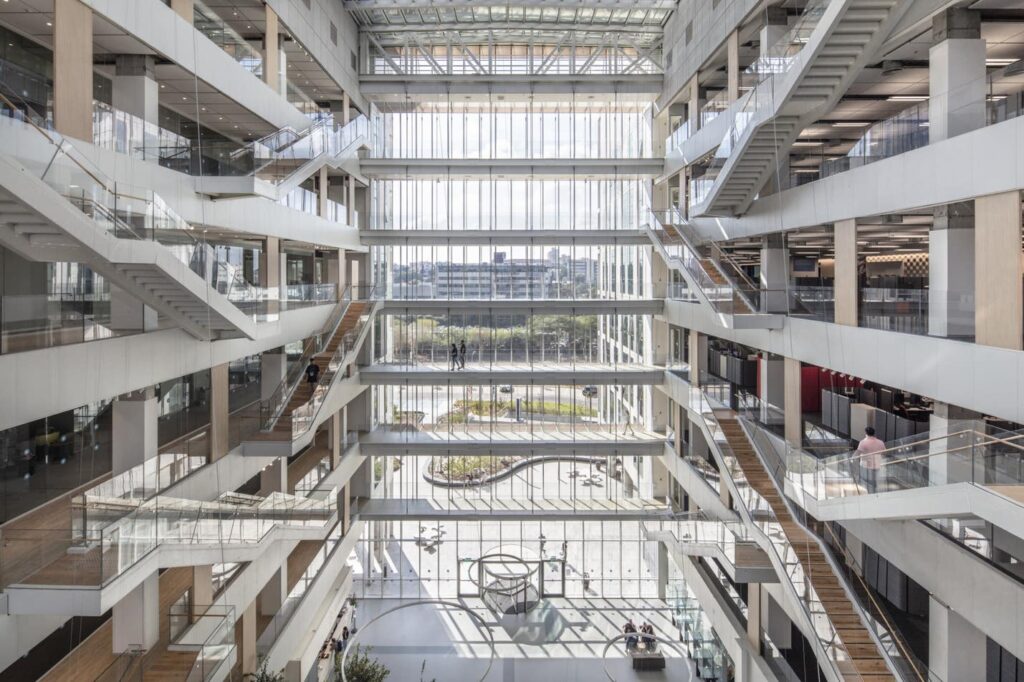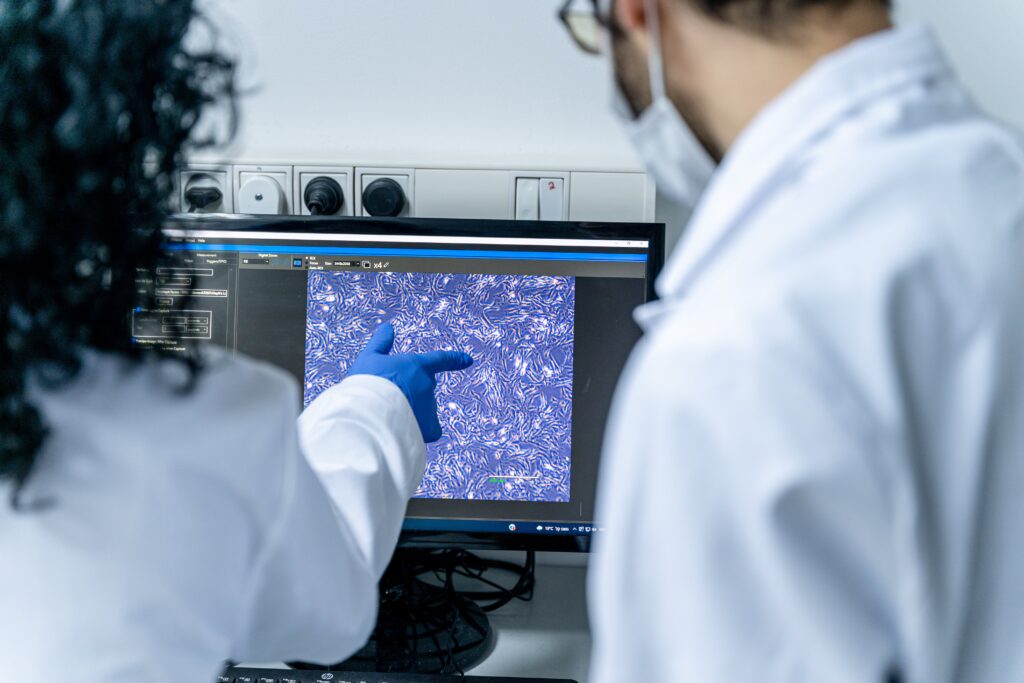Aleph Farms Taps Into AI for More Efficient Cultivated Beef Production
6 Mins Read
Israeli cultivated meat leader Aleph Farms has partnered with biotech startup BioRaptor to integrate AI into its production process, which will enable scalability and reduce costs.
Ahead of launching into restaurants in its home country, Aleph Farms is tapping into BioRaptor’s artificial-intelligence-led operating system to optimise the production of its cultivated beef.
By partnering with BioRaptor, an expert in streamlining biotech processes through data and AI, Aleph Farms hopes to derisk its scale-up plans as it transitions to large-scale facilities with significant capital expenditure. The AI will complement human intelligence by collecting and extrapolating both large datasets generated throughout the cultivated meat development process.
“There are massive amounts of data created during the development of state-of-the-art production bioprocesses, which, when extracted, interpreted, and collected into actionable insights, can boost productivity and reduce costs, time, and human error,” said BioRaptor co-founder and CEO Ori Zakin. “This is exactly our plan with Aleph Farms.”
Using AI to make cultivated meat cheaper and faster

Cultivated meat is grown in bioreactors that provide controlled, clean, and closed environments where animal cells can thrive. These cultivators continuously feed the cells with nutrients and are monitored for various process parameters such as pH, dissolved oxygen and temperature. Understanding this relationship between the cell feed and its environment is vital for defining the most optimal growth conditions.
BioRaptor’s solution allows Aleph Farms to smoothly evaluate cross-experimental findings and have the results configured on a single platform. The ability to review both historical and real-time data, and make projections that enhance experiments leads to a more efficient and less cost-intensive scale-up process.
At Aleph Farms’ current facility in Rehovot, Israel, it can initially produce 10 tonnes of cultivated steak annually. It also announced the acquisition of another plant in Modi’in, Israel last year, alongside an agreement with ESCO Aster in Singapore (the world’s only approved industrial manufacturer for cultured meat). And in February, it partnered with biomanufacturer BBGI and synbio research and manufacturing company Fermbox Bio to set up a production plant in Thailand.
Scalability and costs are two of the most pressing challenges of the cultivated meat industry. Aleph Farms, which aims to reach $1B in revenue by 2030, has previously received 66 million NIS ($18M) in government funding to precisely address these bottlenecks.
Cultured meat itself needs to reach production costs of $2.92 per pound to be price-competitive with conventional meat. But while companies have managed to cut manufacturing costs by 99% in less than a decade, McKinsey analysis suggests it will still take until 2030 for these proteins to become as cheap as meat. “Of common animal proteins, beef delivers the highest value in global markets, so by focusing on cultivated beef, we are able to shorten the timeline to price parity,” Yoav Reisler, senior marketing and communications manager at Aleph Farms, told Green Queen in January.
“By simplifying bioprocess data management and suggesting optimal experimental design, we can enable smoother technological developments for the processes that the cellular agriculture industry has been pioneering,” added Zakin.
Alternative protein’s AI footprint expands

With the large amount of data generated by Aleph Farms, the BioRaptor team-up could help accelerate the development of robust and scalable production processes, according to Sagit Shalel-Levanon, senior director of process development at the cultivated meat startup.
“Our team’s scientific expertise in design of experiment (DoE) methodology and statistical analysis, complemented by BioRaptor’s AI-driven solution, will allow us to better understand the interactions between various process inputs and conditions,” she said.
“Deploying BioRaptor’s most advanced AI and machine learning solution into our R&D will provide additional support for our team to optimise processes for cost and scalability, laying a solid groundwork for our mid- to large-scale production,” said co-founder and CTO Neta Lavon. “Our approach is to build the right foundations as we grow and avoid massive capital expenditure before our process is fully ready for scale.
She continued: “We are investing time and resources to implement the most advanced tools into our differentiated technology platform and its various applications in food and beyond, thereby realising the full potential of cellular agriculture in the burgeoning bioeconomy.”
An increasing number of alternative protein startups are deploying AI to streamline ingredient discovery, research, and production processes. Players like Chile’s NotCo, California’s Climax Foods and Singapore’s Howw Foods are all harnessing the tech for product development, while US mycelium meat maker Meati has used it to conduct a study about its product’s health benefits. And earlier this week, Shiru launched a protein discovery platform and marketplace powered by the tech.
But AI also comes with its own climate conundrums, as these systems are run on large, 24/7 data centres that mostly use fossil fuel energy, accounting for 2.5-3.7% of global GHG emissions. They use a massive amount of water too, with US centres having consumed 1.7 billion litres per day in 2014 – 0.14% of the nation’s daily water use.
“On an ongoing basis, we carefully manage our environmental footprint and this includes conducting a life-cycle assessment on our cultivated meat products, alongside measuring our corporate ecological footprint (greenhouse gases, electricity, water, and waste),” Reisler told Green Queen. “In addition, we have launched programs for energy and resource efficiency. Our transition to renewable energies, our waste management program and our detailed roadmap to net zero help us navigate through a variety of challenges as we scale and eventually meet our ambitious environmental goals.”
Aleph Farms to roll out cultivated steak in foodservice

Aleph Farms hopes to use BioRaptor’s AI to build the right foundations and avoid tall capital expenditures before its process is fully ready to scale. In January, it became the third cultivated meat producer in the world to receive regulatory approval, with Israel’s health ministry clearing it to sell Black Angus Petit Steak under its Aleph Cuts brand.
“We are determined to build up our capabilities in production and sales support before initiating a full product launch. This will help ensure a steady supply of Aleph Cuts to consumers and continuous revenue for Aleph Farms,” said Reisler.”
“Following the completion of a Good Manufacturing Practices (GMP) inspection of our pilot production facility in Rehovot, we will introduce Aleph Cuts in limited quantities via tailored tasting experiences for consumers and other relevant stakeholders,” said Reisler. “This targeted market activation allows us to gather direct feedback from consumers and refine our brand positioning in collaboration with them, helping lay the foundation for a successful full launch.”
He continued: “As Aleph Cuts becomes a new and differentiated category in the animal protein space, applying these marketing learnings is vital before becoming a staple on restaurant menus, in foodservice, and, eventually, in retail.”
The company, which has raised a total of $118M in funding, is also awaiting approval from food safety regulators in Singapore, Switzerland, the UK and the US. The latter made headlines this week after Florida banned the production and sale of cultivated meat in the state. “Barriers to process in specific countries and states may force producers of cultivated meat to redirect resources elsewhere, including to China. Can they afford to relinquish their global leadership due to shortsighted political interests during an election year?” noted Reisler.
“Limiting consumer freedom and restricting entrepreneurial freedom contradict the fundamental principle of a free democratic society. Shouldn’t consumers be given the freedom to make informed choices on their food?” he added.
“Banning a product that’s not yet on the shelves doesn’t improve ranchers’ condition. Fear of change often stems from a lack of trust in the system and concerns about the future. We are ready for an open exchange on how to implement a transition to sustainable and secure food systems, one that is just and inclusive for all stakeholders, including and especially for livestock farmers.”



